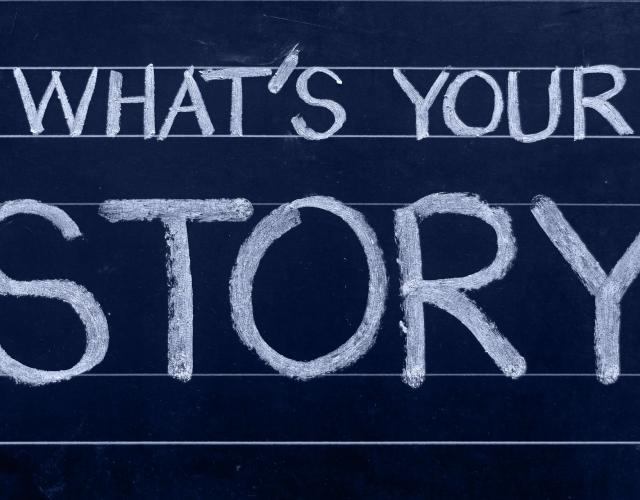Stuttering: The Challenges & Learning Self-Acceptance
I don’t remember when I started stuttering, but my mother said I was about 4 years old.
I would have hesitations and repeat sounds when speaking. This eventually grew more severe and would sometimes include physical behaviors like facial tics during speech, as well as jerky arm and leg movements. I convinced myself these helped me get “unstuck” when I spoke. I knew the way I talked was “different.” And the world around me knew it too. October 22 is International Stuttering Awareness Day. It’s a great opportunity to educate about this disorder, share the challenges and experiences of those of us who stutter and just how an ounce of empathy can go a long way.
What is Stuttering?
There are two types of stuttering: developmental and acquired. Developmental stuttering often begins during the language development years (2-8 years old) and in some cases will persist through the teen years and into adulthood. Research is showing the cause to be related to multiple factors, including language development, brain function, and genetics. Acquired stuttering occurs as a result of a brain injury or disease, such as stroke, Parkinson’s, or a brain tumor. Frequent disruptions in speech can include the repetition of sounds or words, halting or hesitations at the initiation of speech or on certain sounds, prolonging sounds, and disruptions in airflow. While all persons/people who stutter (PWS) have similarities in the kinds of disruptions in speech, the severity and variability of the disruptions can differ. PWS often develop secondary behaviors that accompany the stutter and can be more conspicuous than the stuttering itself. They may look like anything from rapid eye blinking and facial grimaces to slapping or jerking of the legs. And while stuttering is not psychological, it is shaped by the emotions and thoughts that can emanate from the act of stuttering itself.
Unfortunately, many still do not separate a disorder in speech from the person’s actual skills, talents, and overall capabilities.
The Stuttering Experience
What a PWS experiences is unique as the stutter itself. But again, there similarities. There are PWS of all ages and backgrounds that are navigating daily feelings of fear, embarrassment, frustration, and inadequacy due to ridicule from peers, discrimination in the work place, and the sheer physical toll that stuttering has on the body (Ya’ll, it can be EXHAUSTING.). And a listener's attempt to "help," like telling a PWS to "just slow down" or finishing their sentences, may only make the anxiety or frustration worse.Small acts like telling someone your name or talking on the phone can conjure up significant fear and anxiety. As a pre-teen, I remember many times pulling out my souvenir key chain engraved with “HEATHER” when asked to give my name. As weird as that may have seemed, it was better than taking the chance of being teased for not being able to say my own name. Then there’s the PWS who may have reached self-acceptance, stutter freely or learned to relatively manage the disfluency but still find themselves overlooked when it comes to promotions at work or leadership opportunities. Unfortunately, many still do not separate a disorder in speech from the person’s actual skills, talents, and overall capabilities.
An Ounce of Empathy
So what can you---non stutters and stutterers, alike ---do? Well, I once read an anonymous quote that said “We are all on our own journey.” One thing we all have in common is that we all have challenges to face. Try to see it from the other side. So if you choose to look at a PWS as a person dealing with an overt challenge, we won’t laugh at them or see them as a person “holding up the line” but rather a person who is courageous and determined in spite of the difficulty. And for my fellow PWS: don’t hold the rude, discriminatory, and sometimes traumatic behavior from one person against the next. I get it. It’s hard to put yourself out there when you’ve had demoralizing experiences. Not everyone has experience interacting with a PWS, and truly may not know how to respond to you. But you have to give people a chance to know you---to learn that what you say is more important than how you speak. You can educate others about your difference in speech and how you want to be treated. If you close yourself off, you may miss the opportunity to be a pivotal influence in another person's life.
I speak differently, and that's okay.
I’m all grown up now (and a speech pathologist to boot!) but that doesn’t mean I don’t sometimes still feel like I did as a child and teen when encountering new situations and wondering what others might think when I open my mouth to speak. I teach and guide my clients towards better communication ability. I encourage them to advocate for themselves in their daily speaking environments, all the while dealing with the same fears of rejection as they do. I speak differently, and that’s okay. Learning self-acceptance and choosing to live counter to the stigmas has been the biggest, and best, part of my journey so far. Stuttering has shaped who I am but is not ALL that I am. I’m also a wife and a mother. I’m a sister, a daughter and a friend. A book-lover, a fan of musicals and adult onesies. A bedtime snacker, and a woman who relies heavily on my faith to see me through from day to day.
We are all on some kind of journey. If you’re living with a stutter or other communication disorder, try sharing about your challenges with friends and coworkers. Bring awareness! If you know someone with such challenges, initiate a conversation to find out what you can do to help foster better communication within your interactions.
Respond Speech Therapy
Comment Policy
We welcome relevant, respectful comments.
Please review our Comment Policy before commenting.
Terms and Conditions | Privacy Policy | Accessibility Statement
LSVT LOUD® is a trademark of LSVT Global, Inc., registered in the U.S. and other countries.
All Rights Reserved | Respond Speech Therapy | sitemap


